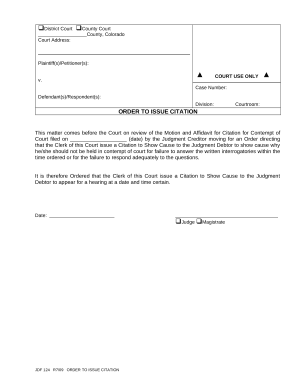
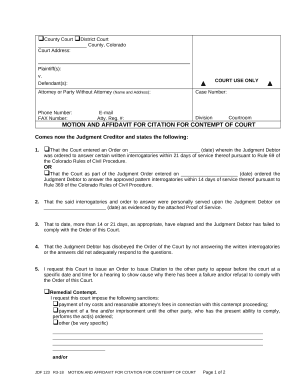
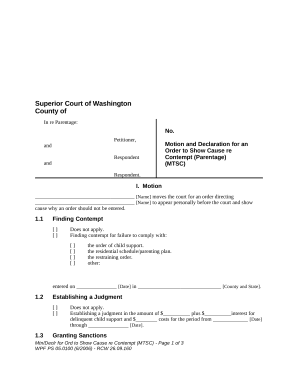


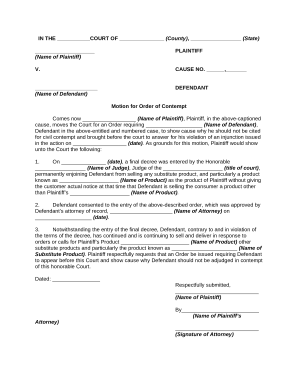
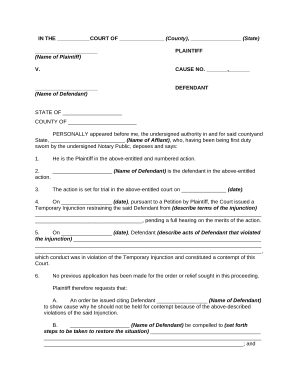
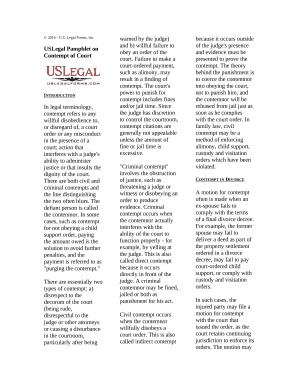
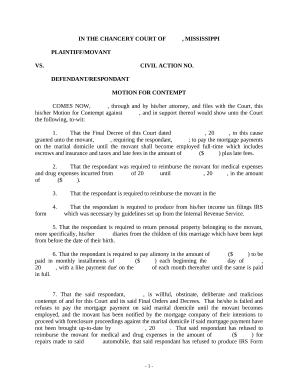
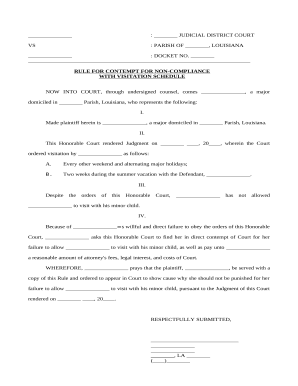

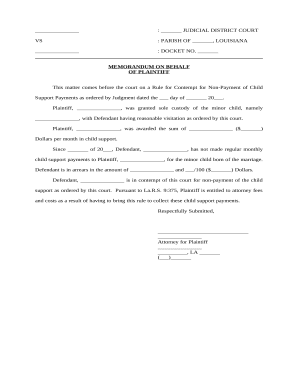
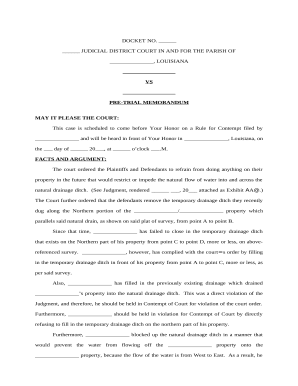
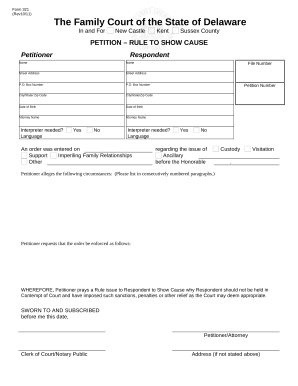
Boost your form operations with the Contempt of Court collection with ready-made templates that suit your needs. Get the document, alter it, fill it, and share it with your contributors without breaking a sweat. Start working more effectively together with your forms.
The best way to use our Contempt of Court:
Examine all the possibilities for your online document administration with our Contempt of Court. Get a free free DocHub profile right now!